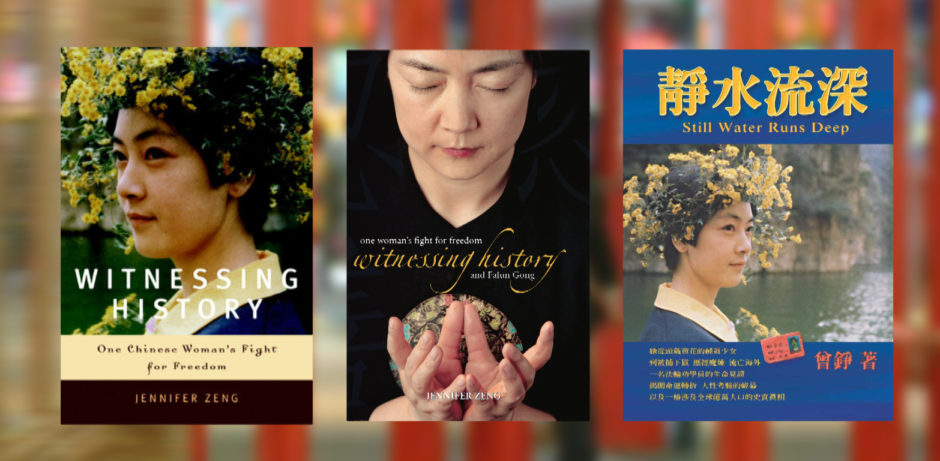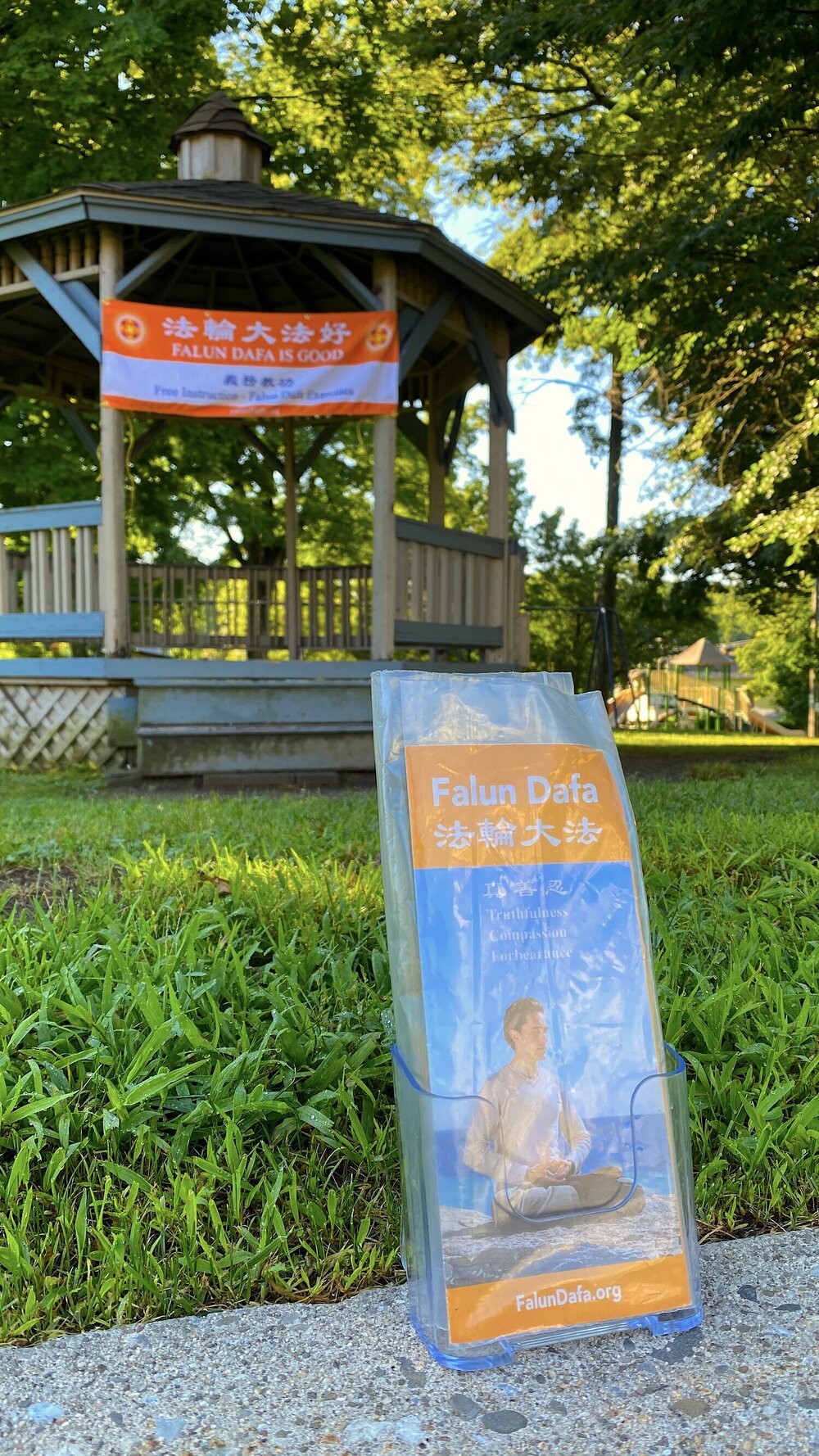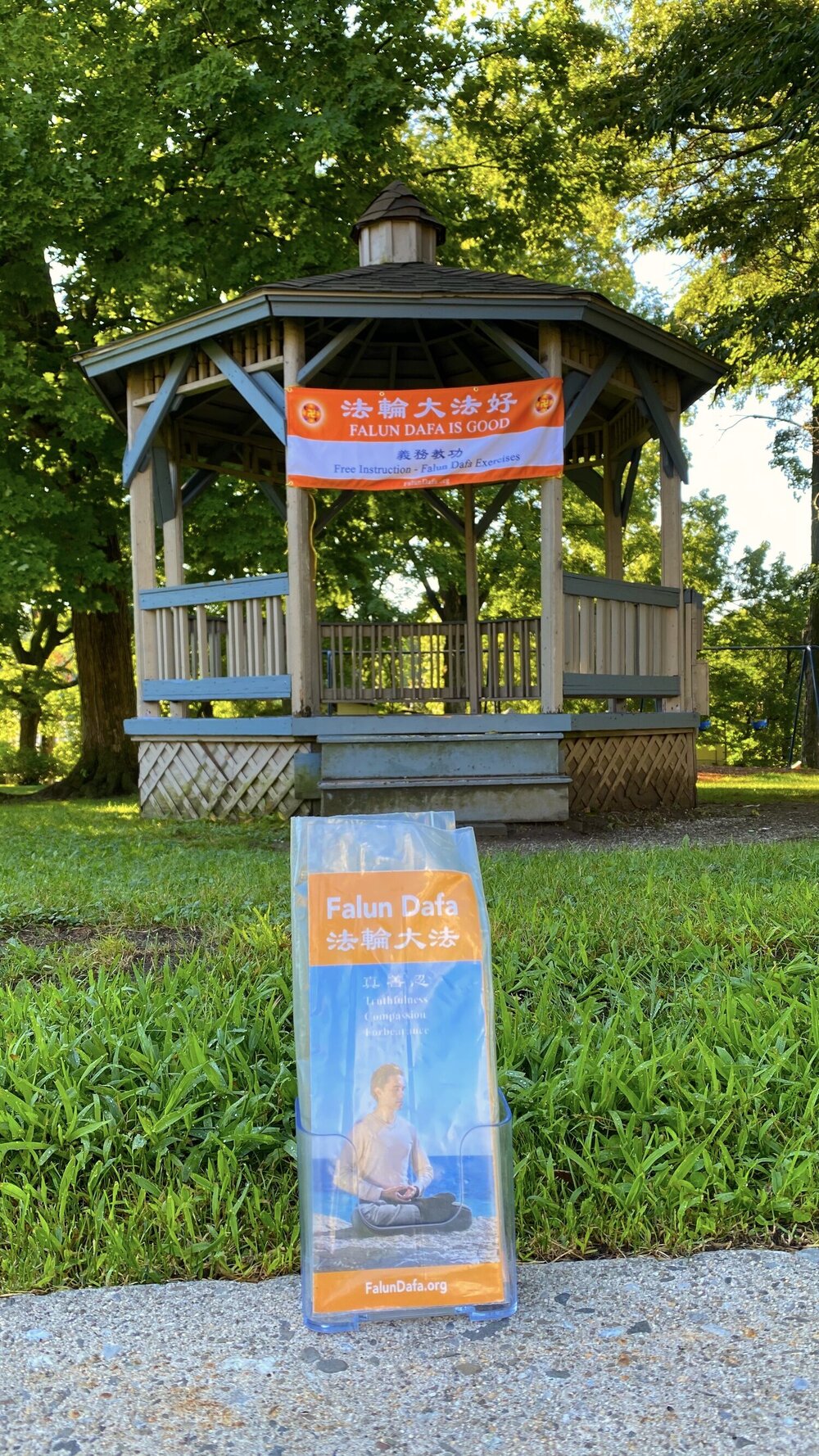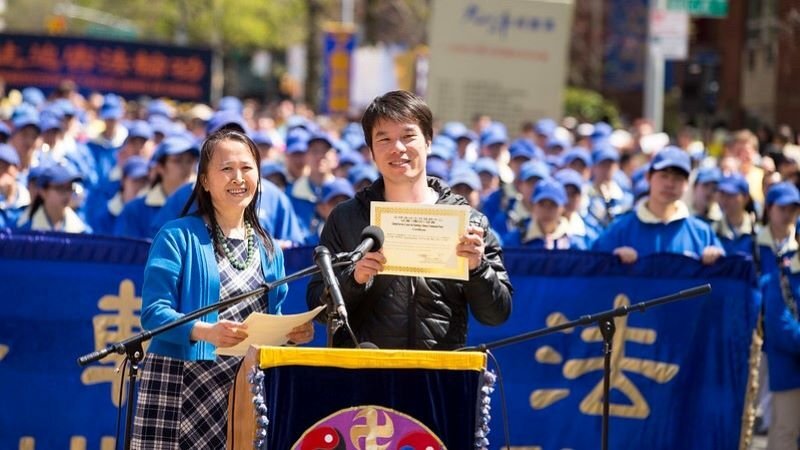Hello, everyone! Welcome to “Inconvenient Truths”. I am your host Jennifer Zeng.
Last week the CCP’s head Xi Jinping traveled to Shenzhen City in Guangdong province to attend a grand ceremony to celebrate the 40th Anniversary of the establishment of the Shenzhen Special Economic Zone. As Shenzhen is somewhat an icon of the CCP’s economic reform and “opening-up” to the outside world, people started to ponder: Does this mean that Xi Jinping will resume Deng Xiaoping’s more right wing economic policy and apply the brake to his left-turning craziness in recent years? In other words, will Xi Jinping turn left or turn right? And what does his choice mean for the CCP and China? Today, let’s discuss these important issues. I will also respond to a few questions from viewers about my last show. So make sure you stick around till the end.
Xi Jinping’s “Southern Tour”
First of all, please subscribe to my channel if you haven’t; and please check if you are still subscribed if you have, because a viewer told me she was unsubscribed without her knowledge. I am not sure how wide-spread this phenomenon is. But many people said my channel and videos deserve much, much more viewers and views! So please do check and help!
Now, let’s talk about Xi Jinping’s “Southern Tour”.
You may or may not know that the CCP’s second-generation leader Deng Xiaoping made a very famous trip to Shenzhen and some other cities 28 years ago, in 1992. That trip was later referred to as Deng Xiaoping’s “Southern Tour”, and became an iconic event for the CCP.
Why was it so important? Because after the Tiananmen Massacre in 1989, some western countries once imposed sanctions on China, and China’s “Reforms and Opening-up” was halted, especially at the Revolutions of 1989 in Europe and around the time of the dissolution of the Soviet Union in 1991.
As the so-called “Chief Designer” of the “Reforms and Opening-up” policy, Deng Xiaoping, who had already officially retired, began his southern tour in January 1992, and visited quite some cities including Shenzhen. He delivered his famous speech in Shenzhen, saying that the Shenzhen government should be bolder in carrying out the Reforms and Opening-up, daring to experiment and find a good or a new path, etc.
So, Deng Xiaoping’s southern tour had put China back on the path of reform and opening-up, and ensured the fast growth of China’s economy for the following decades.
This year marks the 4oth anniversary of the establishment of the Shenzhen Special Economic Zone, which is the first Special Economic Zone in China. So Xi Jinping’s visit to this city, and the fact that he would deliver an “important speech” at the celebration ceremony would of course make people wonder: Does this mean that Xi Jinping wants to stop following Mao Zedong and start to follow Deng Xiaoping instead?
A Lengthy Speech Interrupted by Coughs
Xi Jinping made a lengthy speech for nearly an hour on Oct 13. He praised Shenzhen’s achievements and vowed that “We will steadfastly pursue a mutually beneficial and win-win strategy of openness to draw momentum from the world for development and to enable China’s development to better benefit the world.”
However, his boring speech made less of an impression on people compared to his frequent coughs and long pauses during the speech. China Central Television did live streaming of his speech on YouTube, and whenever he coughed, they turned the camera to the audience to avoid having people see him coughing. Later the live-streamed video was taken down.
Stick to “Socialism with Chinese Characteristics”
Although people had been speculating whether Xi Jinping’s “southern tour” meant that he would stop running to the left and turn right, his speech didn’t give out this message.
Instead, he stressed that “The construction of special economic zones in the new era should hold high the great banner of socialism with Chinese characteristics”, “We must insist on the leadership of the Party…and maintain the correct direction”, “We must insist on and improve the socialist system with Chinese characteristics, and push the socialist system with Chinese characteristics to mature and take shape through practicing reform.”
So, it was very clear that his main message is to stick to “socialism with Chinese characteristics”.
But there does exist a subtle change. Several months ago, in early May, when faced with mounting pressure from the US-China trade war and the pandemic, Xi Jinping introduced a concept called “Internal Circulation” for the Chinese economy, when more and more companies were moving out of China due to the worsening environment.
At that stage, many people saw this so-called “Internal Circulation” as a sign of Xi Jinping preparing to go back to Mao Zedong’s path of “Self-reliance and hard work”, and cut its economic ties with the world.
Applying the Accelerator and the Brake At the Same Time
However, this time in Shenzhen, apart from mentioning “Internal Circulation”, Xi also mentioned “Dual Circulation” that includes both “Internal Circulation”, and circulation with the outside world. Perhaps Xi had realized that mere “Internal Circulation” was not enough to sustain China’s economy.
This also reflects Xi Jinping’s awkward situation of not knowing what to do, or where to go. Some people say that he’s placing one foot on the accelerator, and another one on the brake. And it seems that is exactly what he’s doing.
Replacing Hong Kong with Shenzhen?
Prior to Xi Jinping’s “southern tour”, the CCP released a five-year plan for Shenzhen, with a very long title called “Implementation Plan for the Pilot Comprehensive Reform in Shenzhen for the Construction of a Pioneering Demonstration Zone of Socialism with Chinese Characteristics”.
Through this long plan, people can see that the CCP plans to set up a so-called “Greater Bay Area” that includes the entire Guangdong province, Hong Kong, and Macao, intending to use Shenzhen to replace Hong Kong’s position as a financial center, to attract international capital initially flowing into Hong Kong, as well as Hong Kong’s talents and industries.
In the meantime, the CCP also plans to attract foreign investment, foreign talent, and technology, and continue to promote Digital RMB and the internationalization of the RMB.
I did a program about CCP’s “Digital Currency/Electronic Payment” system two months ago. Things really developed as I had discussed before. If you haven’t watched that one, please go back and watch it.
Anyway, several days before Xi Jinping’s visit, Shenzhen city launched a 10 million yuan program, which encouraged people to download the digital wallet to their cellphones. People who downloaded the digital wallet could participate in a raffle, and 50 K winners could each gain 200 yuan digital money in their digital wallet.
So, we can see that Shenzhen city is really accelerating the process of rolling out the “Digital Currency/Electronic Payment” program.
But the problem is, can Shenzhen really replace Hong Kong and become the next regional international financial center? The CCP destroyed Hong Kong and ruined its status as an international financial center because it destroyed Hong Kong’s freedom first. Without the essential freedom of speech, press, and information, how can a CCP controlled Shenzhen become an international financial center?
It seems that Xi Jinping and his CCP colleagues just can’t get this very basic idea.
Deng Xiaoping vs Xi Jinping: Are There Any Differences?
Some people also say that Deng Xiaoping’s motto is, “It doesn’t matter whether the cat is black or white as long as it can catch mice.” And Xi Jinping’s motto is, “You can go catch mice regardless of whether you are a black or white cat. However, all the mice you catch need to be turned in to the red cat.”
It sounds like a joke, but that is what’s really happening in China; and I discussed this in my recent program called “Will The CCP Start Seizing Private Properties in China Again? What If the CCP Falls?”
As a matter of fact, I don’t see that there is that much of a difference between Deng Xiaoping and Xi Jinping.
Sure, Deng Xiaoping talked about “韜光養晦“, which means “hide our capabilities and bide our time”. Deng Xiaoping asked the CCP to “bide our time” only because the CCP was not that strong then. As soon as it is strong enough, or it thinks it is strong enough, it will show its muscle to the world, as “liberating”, or “conquering” the world is the final goal of Communism anyway. And that’s why the CCP has started becoming more and more aggressive in recent years under Xi Jinping.
Left or Right, Both Are Dead Ends for the CCP
Maybe Xi Jinping doesn’t know this: no matter if he turns left, or turns right, he will meet with a dead-end and take the CCP to destruction.
If he turns left, as he has been doing in recent years, the world will see more clearly the true color of the CCP and start to fight back, and the people inside China will be sooner or later pushed to a point where they will say “enough is enough”, and rise up to overthrow the CCP.
If he turns right, it means he will adopt a more transparent, open, and free system. If people have more freedom to gain true information, especially information about the CCP’s numerous astonishing crimes, if people have more freedom to associate, they will also see the evil nature of the CCP, organize themselves, and overthrow the CCP.
A Shortened Southern Tour & The Possible Reasons Behind It
There is another thing to watch regarding Xi Jinping’s southern tour, which is, this trip was suddenly cut short. It was expected that after Xi Jinping’s visit to Shenzhen, he would go to Guangzhou, and perhaps Zhuhai as well, as those cities had issued very strict security control measures, making people believe that Xi would visit those cities too, as they are very close to Shenzhen, and were once on Deng Xiaoping’s “Southern Tour” list.
However, Xi Jinping’s projected six-day trip was cut short to only 3 days, and people say there could be 4 possibilities:
-
He is ill. After his frequent cough was broadcast live, people have been asking whether he had also caught COVID19 or the CCP Virus. The CCP Virus started in China, if many other world leaders like Donald Trump and Borris Johnson could get it, why couldn’t Xi Jinping?
-
Something was wrong in Guangzhou. It was reported that new CCP Virus cases were found in a resort in Guangzhou. So Xi Jinping might feel that it was not safe to visit this city.
-
Something was wrong in Beijing, and Xi Jinping had to go back in a hurry to deal with it. The CCP’s highly anticipated 5th plenary [ˈpliːnəri/ ]session will be held in Beijing at the end of this month. This will be the last plenary session before the CCP’s next national congress when the next batch of party leaders will be decided. The importance is similar to the US election when a new president will be elected. It is no longer a secret that Xi Jinping has encountered huge opposition within the party, some even say that there were coups happening. For Xi Jinping, whether he can continue to maintain his power is a matter of life and death, so he definitely can’t afford any mishaps.
-
Something was wrong in the South China Sea region, and military actions may be needed. While Xi Jinping was visiting Shenzhen, the US’s Reagan Carrier Strike Group, which had already entered the Indian Ocean, suddenly turned around and headed back to the South China Sea.
In the meantime, the Philippines announced that it had dispatched a maritime [ˈmærətaɪm/] militia [/məˈlɪʃə/] to “protect Filipino fishermen”. The Philippines has been claiming sovereignty over several islands within Huangyan Island and applied for international arbitration in 2016, which was rejected by the CCP.
Also, the Communist Party of the Philippines, which was listed by the Philippine government as an illegal organization, announced on Oct 14 that it would attack Chinese companies in the Philippines, including state-run companies involved in construction projects in the South China Sea that are under U.S. sanctions.
So, some commentators in Taiwan made the speculation that the Philippines may attempt to claim sovereignty over the Huangyan Island again. And in this case, clashes may happen between the Philippines and the CCP, and the US might get involved to offer protection to the Philippines.
According to the Taiwanese commentators, the fact that the official website of the U.S. Pacific Fleet posted a video showing the USS Ronald Reagan transiting the Strait of Malacca, with a lot of soldiers conducting maritime strike exercises shows that the US wants to show to the CCP that it is ready to go to war with the CCP.
By the way, Xi Jinping also told the CCP’s marines to focus on “preparing to go to war” during his southern tour this time, when he visited a military base in Guangdong province on October 13.
So, with both the US and the CCP ready to go to war, will war break out in the South China Sea? And that’s why the Taiwanese TV station listed this as the fourth possibility for Xi Jinping’s sudden return to Beijing: as the head of the CCP’s military, he needs to tackle the tension in the South China Sea area.
Responding to Viewers’ Questions
Next, I’d like to respond to several questions regarding my last show about the Quit the CCP Movement.
One viewer asked: “Even if they quit their CCP memberships, how do we know if he still has loyalty to the CCP? How can the ex-CCP members prove they are not loyal to the CCP anymore?”
Another viewer left a comment saying that “I know quite a few Chinese who found their names in the list but never put it there. So it seems that your organization puts names on the list without asking the people.”
Well, this Quit the CCP Movement started in 2005, as a spiritual and symbolic one to help the Chinese people to see through the CCP’s evil nature and its various crimes in history, to help them make a choice between the evil CCP and justice and conscience, and to undo their deadly pledges to the CCP when they raised their hands in front of the CCP’s bloody flag and vowed that they were willing to sacrifice their entire life for the CCP.
The people who started the movement, as well as all the volunteers who got involved, believed that the CCP’s fundamental ideology is anti-universe, and anti-humanity, its history is one of killing and destruction, and its ultimate goal is to destroy mankind. The CCP is controlled by an evil specter, a Satan, and Heaven will eliminate it one day.
And when Heaven eliminates the CCP, who will go with the CCP? People who once vowed that they belong to the CCP.
So if someone agrees to quit, or chooses to quit, he or she no longer belongs to the CCP and can be saved and kept when the day of the CCP’s elimination comes.
You know, back in 2005, when this movement first started, the CCP was very powerful, it is still very powerful in many people’s eyes today, if you ask people inside China to quit with their real names, maybe 95% dare not to.
However, as this is a choice made in people’s hearts to show to Heaven, it doesn’t matter if they use an alias, as long as their choice is real, as Heaven can see their hearts.
So that’s the philosophy behind this movement. People may choose to believe it, or not to believe it, but all those volunteers believe in it and act upon it.
As this is something to show to Heaven, they are very serious about it.
People are allowed to publish their declarations with aliases, so if you see a name on the list that is exactly the same as your name, don’t assume that name belongs to you, or somebody has published a declaration for you without your knowledge, as that declaration belongs to somebody else who also has the same name.
Also, declarations are published without any other details like addresses, ages, photos or gender. So there is no way that you can claim that a declaration belongs to you just because the name is the same as yours.
For people in the West, you might think it is a super easy thing just to type into a computer a declaration; and one could type in as many as one wants.
But in real life, it is not the case at all. Let me give you a real example.
I have a close relative, who joined the CCP when he was only 18 years old and had been a party secretary for many years before he retired.
He stayed with me for 6 months around 2007 when I was still in Australia. I gave him many materials to read, including how the CCP has been killing people to harvest their organs, etc. He didn’t say that he didn’t believe that the CCP has been killing. However, he said that each emperor killed a lot of people in history, and it is a necessary evil if this emperor or this party wants to maintain its power.
So, I failed to convince him to quit after 6 months’ effort.
4 years ago, this relative, who was already in his 80s, came to Australia again. I happened to go back to Australia at that time too. I stayed a week with him and again tried to ask him to quit.
This time he didn’t argue with me but said that if I could find an Australian wife for him to enable him to gain a green card, he would surely quit. If I couldn’t, and he needed to go back to China, he doesn’t dare to quit.
Where could I find an Australian wife for an old man who could only sit in a wheelchair and couldn’t walk anymore? Plus, I don’t believe one’s quitting the CCP should have a pre-condition of me finding a wife for him. So, this time I failed to convince him again.
My point is, while the CCP is still in power, for any Chinese person who agrees to quit, it is a very big deal. If they don’t agree with what you say, or they don’t trust you, they won’t quit.
Now, of course, with the US government banning CCP members, some people may pretend that they want to quit. I can only say that as volunteers of the Quit the CCP Movement, they can’t control people’s hearts or actions. If people choose to cheat the US government, it is up to the US government to figure out a way to tackle it.
On the other hand, if one wants to migrate to the US, it means that he or she thinks that the US is better than China. In this sense, I don’t think they will think it is wise to continue to do evil for the CCP.
As I said in my last show, the tide is turning and shifting. Anybody who is sensible enough should be able to see this, and choose not to do evil for the CCP anymore.
I hope I have addressed the questions.
OK, that’s all for today. Thank you for watching. Truth saves lives. Please subscribe to and share my channel, and check out my other videos.
Thank you. See you next time!
10/20/2020
Truth Saves Lives. Subscribe and support! 真相能救命。請支持!
Subscribestar 會員頻道: https://bit.ly/3fEzeJB
YouTube 油管:bit.ly/3b87DPj
GoFundme 衆籌:https://bit.ly/2zx6LVw
Patreon 網站:https://bit.ly/3cvBy3H
Paypal 捐款:http://paypal.me/JenniferZeng97








How Has Biden’s Stance on China Changed while His Family Businesses Developed
Hello, everyone! Welcome to “Inconvenient Truths”. I am your host Jennifer Zeng.
Recently, surrounding the content of a laptop computer belonging to Hunter Biden, son of US presidential candidate Joe Biden, a lot of fierce battles have been going on among “information”, “misinformation”, exposure of facts, and suppression, blocking and deleting of information. Some people say that the stakes in this US election are high, as the result will not only decide the fate of the US, but also the future of the world. But today I won’t talk about Hunter Biden’s controversial laptop. The facts I am going to present about “Biden’s China Evolution” are all based on previous public information or media reports. I will also tell everyone a true story I learned from former Chinese diplomat Chen Yonglin who defected to Australia in 2005, about how the CCP used an underage girl to corrupt an Australian politician. So make sure you stick around till the end.
A Hawkish Figure on CCP
Joe Biden’s interest in China began more than 40 years ago when he first entered American politics, and in 1979, while serving as a U.S. Senator, Biden made his first trip to China and met with the then CCP leader Deng Xiaoping.
In 1997, Biden joined the U.S. Senate Foreign Relations Committee where he was involved in shaping U.S. foreign policy and where he served as Chairman in 2001.
Having long diplomatic experience has become one of Biden’s main political advantages. In the early days of his presidency of the Senate Foreign Relations Committee, Biden was considered a hawkish figure with a hardline attitude toward the CCP.
According to the record of the U.S. Congress, in 1991, during a Congressional discussion of China’s Most-Favored-Nation (MFN) status, Senator Biden strongly opposed the then President Bush’s intention to extend China’s MFN status, stating that “…if China continues to behave as a rogue elephant on weapons proliferation, we should be prepared to retaliate with a clear and unequivocal message…denying China most-favored-nation trade status.”
Ten years later, as the newly appointed chairman of the Senate Foreign Affairs Committee, Biden traveled to China in August 2001 and met with the then CCP leader Jiang Zemin.
According to a BBC report, before arriving in China, Biden said he would press China on a range of issues, including human rights, China’s threat to Taiwan, and preventing missile proliferation.
Changed Stance
Since then, however, Biden, as a key figure in U.S. foreign policy, has gradually changed his attitude toward the CCP.
According to a New York Times report, Biden expressed his interest in helping the CCP to enter the World Trade Organization during that trip when he met Jiang Zemin. He said to Jiang, “The United States welcomes the emergence of a prosperous, integrated China on the global stage, because we expect this is going to be a China that plays by the rules.”
In November 2001, China finally succeeded in joining the WTO. The U.S. Congress approved it, and Biden, as the chairman of the Senate Foreign Affairs Committee, did not oppose it.
In 2007, Biden was re-elected Chairman of the Senate Foreign Affairs Committee, rising to the top of American politics.
A Start-up
Since then, his son, Hunter Biden, and his friends in the same circle also started entering the international business community.
In 2008, shortly after Biden was chosen by Obama as his vice presidential candidate, Hunter Biden co-founded the consulting firm Seneca Global Advisors with Christopher Heinz, the stepson of John Kerry, who later became U.S. Secretary of State.
In 2009, Hunter Biden, Christopher Heinz, and John Kerry’s advisor Devon Archer, co-founded the investment firm Rosemont Seneca. Seneca Global and Rosemont Seneca later played an important role in the Biden family’s business deals with the CCP.
A Broker
At the same time, the rapid development of economic and trade relations between the US and China, especially the corrupt system of the CCP, has provided tremendous business opportunities for power brokers who trade money and power. One of the closest ties to the Biden family is Taiwanese businessman Michael Lin, who founded a “Financial Services” company Thornton Group with James Bulger, son of former President of the Massachusetts Senate William Bulger. Ever since its inception, the Thornton Group has been closely associated with the State Legislative Leaders Foundation (SLLF), a politically influential organization in the U.S.
In July 2008, Michael Lin’s Thornton Group set up SoleburyThornton (Beijing) Consulting Co., Ltd in Beijing, with James Bulger as the legal representative.
In January 2009, Joe Biden became the Vice President of the US and John Kerry became the Chairman of the Senate Foreign Affairs Committee. In the same year, Michael Lin was appointed by the State Legislative Leaders Foundation as the Asia/China Director, responsible for liaising with Chinese officials.
In November 2009, Michael Lin and the Thornton Group hosted the first U.S.-China Provincial/State Legislative Leadership Forum in Beijing. It became very obvious that Michale Lin was working very closely with the CCP’s United Front Department, as the sponsors of the forum were the CCP’s top United Front organizations, such as the Chinese People’s Institute of Foreign Affairs, Chinese People’s Association for Friendship with Foreign Countries, National People’s Congress Foreign Affairs Committee, etc.
According to Thornton’s website, which is now closed, in April 2010, Michael Lin introduced Hunter Biden to various Chinese financial institutions, saying that Hunter’s purpose was to “deepen mutual understanding and explore the possibility of business cooperation.
Only a few days later, Joe Biden met with visiting Chinese President Hu Jintao in Washington.
A Stark Contrast
On August 17, 2011, Joe Biden visited China again. During this trip, he significantly softened his stance on the CCP.
In a meeting with then-Chinese Vice President Xi Jinping, Biden said that the U.S. side fully understands that the Taiwan and Tibet issues are China’s core interests, the U.S. will continue to resolutely pursue the one-China policy, the U.S. does not support “Taiwan’s independence”, and the U.S. fully recognizes that Tibet is an inalienable part of the People’s Republic of China, etc.
According to U.S. government records, Joe Biden no longer directly criticized the CCP’s poor record on weapons proliferation and human rights during the trip.
Instead, he advocated vigorously about developing a close relationship with the CCP, in stark contrast to his hard-line approach a decade ago and earlier.
The Largest Foreign Venture Capital Investment
Then, in February 2012, while Xi Jinping was visiting the US and meeting with Joe Biden, Hunter Biden’s Seneca Consulting pulled in a $1.25 billion investment from China for Great Point, a U.S. energy start-up. This was the largest foreign venture capital investment the US received that year.
The 1.25 billion investment was from Wanxiang Group in China, which has very deep ties with the CCP, although it was said to be a private company. Its founder Lu Guanqiu had always been the CCP’s party secretary of the Wanxiang Group and had accompanied the CCP leaders on many visits to the US, including two trips with Xi Jinping.
BHR Partners and “Dry Shares”
In December 2013, then-U.S. Vice President Joe Biden visited China to meet with Xi Jinping. His son Hunter Biden accompanied him on the trip.
10 days after this trip, Hunter Biden closed the Biden family’s second big deal with the CCP – a $1 billion investment fund.
On December 16, 2013, BHR Partners was established by the Bohai Industrial Fund, Harvest Fund Management, Rosemont Seneca Partners, and the Thornton Group. 6 months later, the CCP raised the size of the BHR funding to $1.5 billion, and Hunter Biden was one of nine directors of BHR with a 10% stake.
Shareholders of BHR Partners included China’s famous state-owned big, national financial institutions and enterprises, such as Bank of China, China’s National Social Security Fund, China Development Bank, Tianjin TEDA, etc.
Now, let’s take a look at the shareholding structure of BHR Partners.
Hunter Biden owned a 10% stake. Bank of China, Postal Savings Bank of China, China Development Bank, and a pension fund, these four major Chinese big financial institutions held 30% of the shares, Harvest Fund Management, one of the four major funds in China, held 30%, and three other companies belonged to high ranking CCP officials each held 10%.
From this structure, we can see that only the two big shareholders that held 30% of BHR Partners were using real money to invest in the company, while the other four shareholders including Hunter Biden were given free, “dry shares”.
“Dry share”, or 乾股 (Gan Gu) in Chinese, is a special term in China. I am not sure whether there is such a thing in western countries. I searched for it, but didn’t find any results.
So “dry share” is the literal translation of 乾股. It refers to shares that are given for free. For example, if you have some kind of “intangible asset”, such as your connections, your patents, your intellectual property rights, your celebrity status, etc, they can be turned into “dry shares”, and you don’t need to invest real money in a company, but still own part of it.
In Hunter Biden’s case, it seems that his “intangible asset” is his connection to his powerful father Joe Biden.
Starting from 2014, BHR Partners had been acquiring companies across the Americas, Africa, and Australia, in industries ranging from military manufacturing to metals mining, to intelligence technology.
As of 2016, BHR Partners has completed the delivery of a number of major projects with market influence, with an asset management scale of over 12 billion yuan, or 1.8 billion US Dollars.
We must mention that Hunter Biden paid $420,000 in 2017 for this 10% stake in 2017. Paying a mere $420,000 to own 10% of a fund of 1.8 billion was like getting it for nothing.
“I Want China to Succeed”
According to U.S. government records, Biden further softened his stance on the CCP during his trip in 2013.
In Oct. 2014, when giving a lecture at Harvard Kennedy School, Joe Biden said, “I don’t know how long I’ve been hearing about how China is eating America’s lunch. ” “I want China to succeed, it’s in our interest they succeed economically.”
He also said, “Managing our relationship with China is the single most essential part of the strategy at which we must succeed. Even as we acknowledge that we will often be in competition, we seek deeper cooperation with China, not conflict.
“Nowhere is it written that there must be conflict between the United States and China. “There are no obvious, obvious impediments to building that relationship.”
From this, we can see that Joe Biden’s attitude toward the CCP had changed completely compared to 13 years ago.
The “Big Guy” and CEFC China Energy
In 2017, Hunter Biden had some other business adventures with CEFC China Energy. You may or may not have read all the relevant reports from the New York Post, Fox News, Wall Street Journal, and Daily Mail, etc. So to cut a long story short, it is like this: Hunter Biden was offered $10 million annually “for introductions alone”, and 20% of the shares of a new company, while “the big guy” could have 10%.
Tony Bobulinski, former business associate of Hunter Biden, made an explosive video statement on Oct 22, and confirmed that the “big guy” was Joe Biden, and that Joe Biden was “a willing and eager participant” in this “family scheme”.
Tony Bobulinski: On May 2 2017, the night before Joe Biden was to appear at the Milken conference, I was introduced to Joe Biden by Jim Biden and Hunter Biden.
At my approximately hour-long meeting with Joe that night, we discussed the Bidens history, the Biden family‘s business plans with the Chinese, with which he was plainly familiar, at least in a high level.
Tony Bobulinski: On numerous occasions, it was made clear to me that Joe Biden’s involvement was not to be mentioned in writing, but only face to face.
In fact, I was advised by Gilliar and Walker, that Hunter and Jim Biden were paranoid about keeping Joe Biden’s involvement secret.
I also had a disagreement with Hunter about the funds CEFC was contributing to the SinoHawk.
Hunter wanted 5 million of those funds to go to himself and his family. So he wanted the funds wired directly to an entity affiliated with him.
I objected because that was contrary to our written agreements concerning SinoHawk.
He said, referring to the chairman, his father, that CEFC was really investing in the Biden family that he held the trump card and that he was the one putting his family legacy on the line.
He also said to me on May 17, 2017, that CEFC wanted to be “my partner”, to be partnered with the Bidens.
I won’t go into any more details with this as everyone can do a search and find the reports I just mentioned. But don’t search them on Twitter or Facebook, as these platforms have been blocking or suppressing them since the news came out last week.
A Ture Story: An Australian Politician’s Sex Video
Next, as promised, I will talk about a true story I learned from Chen Yonglin, a former CCP diplomat. I won’t say why I share this seemingly “unrelated” story here. But I am sure you will work out after you listen to it.
Chen Yonglin had experienced a very difficult time after he defected to Australia in 2005. The CCP threatened to assassinate him, and was said to have sent a 3 person task force to do the job. But the Australian government didn’t offer him protection immediately. He struggled very hard to find a safe place to stay, and trusted people who could help him during that difficult time.
I was introduced to him by a friend, and won his trust quickly. So I volunteered my time and acted as his media contact person, and accompanied him everywhere when he gave interviews to the media. A New York Times report in 2005 mentioned that I was with him during that interview with the New York Times. That interview was done in a hotel room in Sydney, I still remember it well.
So the following story was from Chen Yonglin himself. He told me a lot of inside stories about the CCP at that time.
There was a politician in Australia, who became the first ethnic Chinese member in the Upper House of the NSW Parliament. When he visited China, the CCP introduced a lovely young girl to him. He had sex with that girl in the hotel. He didn’t know that everything was secretly recorded. When the CCP showed him the video and told him that the girl was an underage girl, not an adult yet, he was nearly scared to death, as having sex with an underage girl is a criminal offense in Australia. From then on this politician would do whatever the CCP asked him to do.
By the way, Chen Yonglin became a CCP diplomat in 1991 when he joined the Ministry of Foreign Affairs of China, and had worked at the Chinese Consulate in Sydney as the political consul for 4 years before he defected in 2005. He had told Australia that there were about 1000 CCP spies in Australia alone shortly after his defection.
OK, that’s all for today. Thanks for watching. I hope today’s program gave you a lot of food for thought. Please subscribe to and share my channel, and check out my other videos you may have missed.
Thank you. See you next time!
10/24/2020
Truth Saves Lives. Subscribe and support! 真相能救命。請支持!
Subscribestar 會員頻道: https://bit.ly/3fEzeJB
YouTube 油管:bit.ly/3b87DPj
GoFundme 衆籌:https://bit.ly/2zx6LVw
Patreon 網站:https://bit.ly/3cvBy3H
Paypal 捐款:http://paypal.me/JenniferZeng97